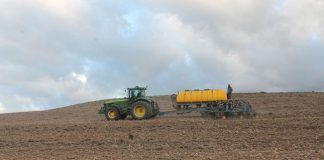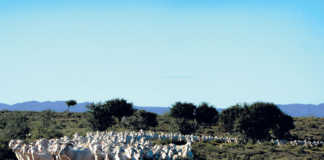
Photo: Lindi Botha
While the labour federation Cosatu applauded the increase, how employers will continue to absorb the ever-increasing cost of wages remains to be seen.
Data from labour management company Agrigistics, shows that since the initial introduction of the NMW in 2019 there has been a staggering 39% rise in wages.
READ The 10-year review of the National Development Plan
Matthew Parks, Cosatu’s acting national spokesperson, said the increase would give the economy a much-needed stimulus, spurring growth and helping to sustain and create jobs.
“It will provide relief to more than six million workers earning within the NMW range. Workers in the agriculture, domestic, construction, retail, hospitality, transport, security, and cleaning sectors will benefit most.”
Johann Kotzé, CEO of AgriSA, said that although the organisation has always supported decent wages, this wage increase cuts both ways. “On the one hand, it has the potential to improve the spending power of households, but on the other, it could mean job losses, especially in smaller farm businesses.
“Because the higher wage reduces farm businesses’ ability to hire, the increased wage could mean zero wages for some.”
Kotzé pointed to rising operating costs, largely as a result of load-shedding and increasing input costs, and said that the agriculture industry was already strained.
“The higher minimum wages combined with the impact of load-shedding and rising input costs could lead to job losses in exactly the industries that have been earmarked by the National Development Plan to drive job creation.”
While advocating for the need to address inequality, CEO of youth development agency Afrika Tikkun, Onyi Nwaneri, said that the decision “may inadvertently discourage job creation”.
“A blanket minimum wage increase, though well-intentioned, poses challenges for businesses, especially for small, medium-sized and microenterprises, which are the lifeblood of South Africa’s economy.
“It is crucial to strike a delicate balance between reducing inequality and fostering an environment that promotes job creation. Expensive labour and stringent labour policies hinder job creation and will hamper the country’s efforts to provide access to the economy. This will ultimately counteract the government’s goal of reducing dependence on welfare.”
Parks noted that beyond the NMW, government needs to tackle the other obstacles to growing the economy, in particular load-shedding, cable theft, collapsing infrastructure and endemic crime and corruption.
“These are critical to unlocking the economy, rebuilding public services, slashing unemployment, creating decent jobs as well as ensuring workers earn a living wage.”
The NMW is the minimum amount of pay that an employer is legally required to remunerate employees for work done.
The amount does not include payment of allowances, such as transport, tools, food or accommodation, payments in kind, for board or lodging, tips, bonuses and gifts among others. The NMW first came into implementation in 2019 at a minimum of R20/hr. The NMW is enforced by law and violations are subject to fines.












